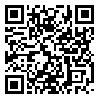BibTeX | RIS | EndNote | Medlars | ProCite | Reference Manager | RefWorks
Send citation to:
URL: http://hakim.tums.ac.ir/article-1-1511-en.html
Effect of Group Counseling based on Cognitive-Behavior Therapy on Depression and Self-Efficacy in Addicts with Successful Withdraw
Bahadorzade M1 (MSc), Jajarmi M2 (PhD), Jalalabadiravari M3 (MSc), Eydi-Baygi M4* (PhD)
1 Department of Psychology, Faculty of Psychology, Islamic Azad University, Torbat Jam, Iran
2 Departments of Psychology, Faculty of Psychology and Educational Sciences, Islamic Azad University, Bojnord, Iran
3 Departments of Counseling, Faculty of Educational Sciences, Islamic Azad University, Ghochan, Iran
4 Department of Psychology, Faculty of Psychology and Educational Sciences, Shiraz University, Shiraz, Iran
Original Article
Received: 15 Feb 2015, Accepted: 7 May 2015
Abstract
Introduction: The aim of the present study was to assess the effect of group counseling based on cognitive-behavior therapy on depression and self-efficacy in male addicts with successful withdraw.
Methods: This was an experimental study. The study population consisted of male addicts with successful withdraw who were referred to the residential Kowsar institute for psychological rehabilitation. Forty participants were selected using the random sampling method. The participants were divided and assigned randomly into two equal groups. The participants completed the Sherer self-efficacy scale and Zung self assessment Depression Scale. The experiment group received 12 sessions of cognitive– behavioral therapy. The control group received usual care. Data were analyzed in the SPSS-16 using the multivariate variance analysis method and the independent t-test.
Results: After the intervention, the means (standard deviations) of the depression scale were 60.70 (6.44) and 63.35 (35.5) in the experiment and control groups, respectively. After the intervention, the means (standard deviations) of the self-efficacy were 57.60 (4.13) and 42.40 (4.88) in the experiment and control groups, respectively. The results of this study showed that cognitive - behavioral therapy significantly affected the depression and self-efficacy of male addicts (p<0.001).
Conclusion: The cognitive - behavioral therapy was effective in depression and self-efficacy among male addicts with successful withdraw.
Key words: group counseling, cognitive-behavior therapy, depression, self-efficacy, addicts with successful withdraw
Please cite this article as follows:
Bahadorzade M, Jajarmi M, Jalalabadiravari M, Eydi-Baygi M. Effect of Group Counseling based on Cognitive-Behavior Therapy on Depression and Self-Efficacy in Addicts with Successful Withdraw. Hakim Health Sys Res 2015; 18(2): 114- 120.
*Corresponding Author: Department of Psychology, Faculty of Psychology and Educational Sciences, Shiraz University, Shiraz, Iran. Tel: +98- 936- 6229040. E-mail: majid_eydi@yahoo.com
Received: 2016/04/5 | Accepted: 2016/04/5 | Published: 2016/04/5
| Rights and permissions | |
 |
This work is licensed under a Creative Commons Attribution-NonCommercial 4.0 International License. |





